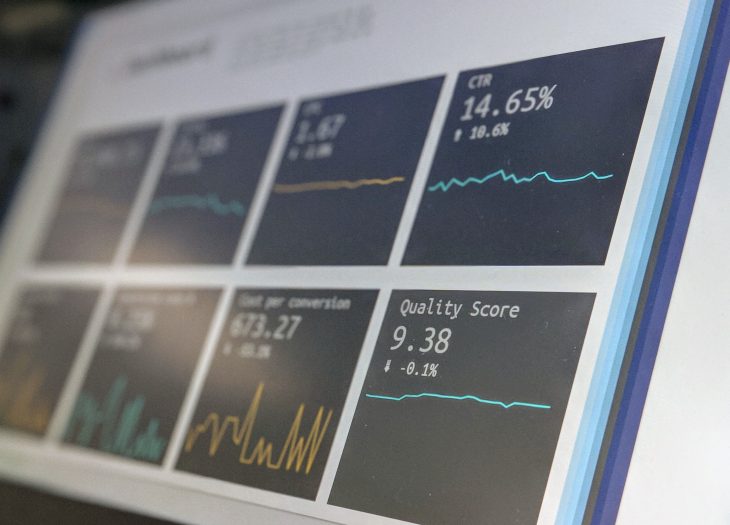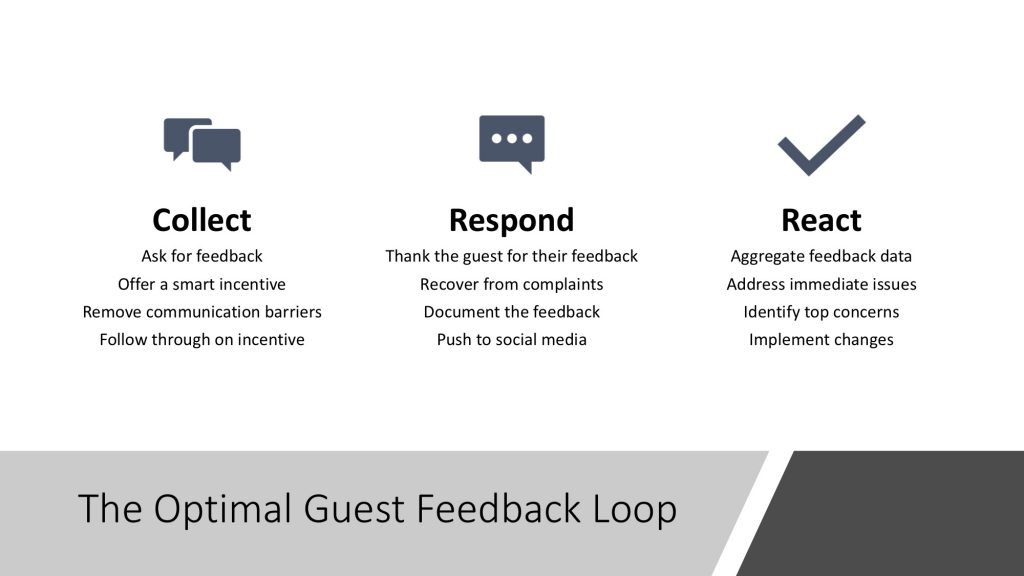
Optimizing Your Guest Feedback Loop
When it comes to consumer insights in the attractions industry, guest experience data is a hot topic. But how do you know which insights are the right ones, and how do you use this data to actually improve your business?
Your guests are indicating a greater appreciation for businesses who directly ask for their feedback. If you use guest feedback data effectively, it can work in your favor. However, if you do not have a feedback loop procedure in place for your guests, then online review sites and other social platforms will begin working against you.
Here are my recommendations for how operators in the attractions industry can best optimize their guest feedback loop.

Collect
Ask for feedback. Many guests will never share their feedback, and some will only provide feedback if they have a polarizing positive or negative experience. The majority, however, will often share their thoughts with you if just given a nudge. Directly seeking feedback from guests will drastically increase the amount of data you can collect. Seeking feedback can be done in person, via exit surveys, or post-visit emails, as long as there is a direct request.
Offer a smart incentive. Productively incentivizing your guests to submit feedback to you directly can amplify the amount of data you can collect. Your incentive should be something that gets guests back in the door and spending more. However, you should NEVER offer an incentive for leaving online reviews. This can damage your online reputation, so it is best practice to only offer an incentive if you are looking to gain the feedback internally.
Remove communication barriers. Make sure your staff is easily approachable, and designate a location onsite where guests can provide feedback and gain immediate assistance. Ensure that all web-based applications include an intuitive way to get to you, including your website and all social media platforms. Otherwise, guests will quickly find themselves posting their complaint on social media or online review sites.
Follow through on incentive. Make sure your incentive is easily attainable. Link online surveys to your e-commerce page so that guests can transact immediately. Ensuring that the guest can take advantage will not only result in guest satisfaction, it also guarantees their future visit and collects revenue immediately.
Respond
Thank the guest for their feedback. If a guest has a bad experience, the easier solution is to not go back then it is to let management know of their concerns so they can be addressed. That is why responding quickly and expressing appreciation for guests’ feedback is crucial for managing your guest feedback loop, whether the feedback is positive or negative.
Recover from complaints. If your primary guest feedback is coming to you through internal channels, you have the opportunity resolve service failures before they hit online review sites. Research suggests that guest satisfaction after going through a recovery experience can be even higher than guests who have a positive experience from the start.
Document the feedback. You must have a system for organizing and filing guest feedback through all channels, so that it can ultimately be aggregated and calculated. Responding to a guest and moving to the next without developing a sense of your order to consumer insights will keep you in a revolving door of putting out fires.
Push to social media. This step should be taken with satisfied guests, and never directly incentivized. Fortunately, you can determine which guests are satisfied when seeking feedback, and request online reviews immediately. Guests who are initially dissatisfied and then converted eventually enter your pool of satisfied guests who you can now ask for a review. Pushing guests to social media too early, however, risks damaging your reputation when you could have intervened with an unhappy guest.
React
Aggregate feedback data. Since your feedback has been documented, it should then be compiled with all other data during the same timeframe. This allows you to see where the largest areas of concern are, along with the overall perception of the guest experience. This is where qualitative data should be converted to quantitative, providing you with metrics that relate to the feedback that your guest provided.
Address immediate issues. Guest feedback gives you a wealth of both short term and long-term actions. First, take a look at what can be improved from an operational enhancement. This can be related your procedures or staff policies that can be updated with little or no impact to your infrastructure. Acting on guest feedback does not need to be overwhelming, it just needs to be impactful. What can you change today that will improve the guest experience?
Identify top concerns. Use your aggregated data to locate the most pressing issues based on what guests are complaining about in large groups. This is where quantifiable aggregated demand plays a key role, because one complaint from one guest is just that. As the number of individuals with the same complaint arises, guest feedback data should justify projects that will have a greater impact on your long-term guest experience. Complaints that come in large numbers across long periods of time should be your priority in making changes.
Implement changes. Looking at complaints through the lens of the guest will allow more effective solutions to surface. Remember: complaints occur when a guest has an expectation that is not met. By helping align their expectation with top concerns, friction points in the experience can be minimized. Complaint categories should be addressed creatively, not just flipped – for instance, complaints that prices are too high does not mean that prices should be lowered. Consider what would have to happen to turn that feedback into a positive, and go from there.
Once you successfully collect, respond, and react, there is only one thing left to do: repeat. The best way to measure the success of your implementations is to continue the measurement of the guest experience and regularly fine tuning your operation, driven by your continuously moving feedback loop.
Josh Liebman
Josh Liebman specializes in guest experience within attractions, tourism, and hospitality, including service standards, complaint resolution, and driving guest loyalty. Josh is a serial entrepreneur, podcaster, consultant, and speaker. Josh has worked for some of the top attraction operators in the world, including, but not limited to Walt Disney World, Universal Orlando, Merlin Entertainments, and Cedar Fair. Josh has been integral to the openings of multiple attractions in various leadership capacities. Additionally, Josh has consulted for many of the world’s leading hospitality brands, including Ritz Carlton, Four Seasons, Waldorf Astoria, and many more. Josh is Co-Host of the AttractionPros Podcast, which brings the audience into the room with the top leaders, executives, and influencers in the attractions industry.
